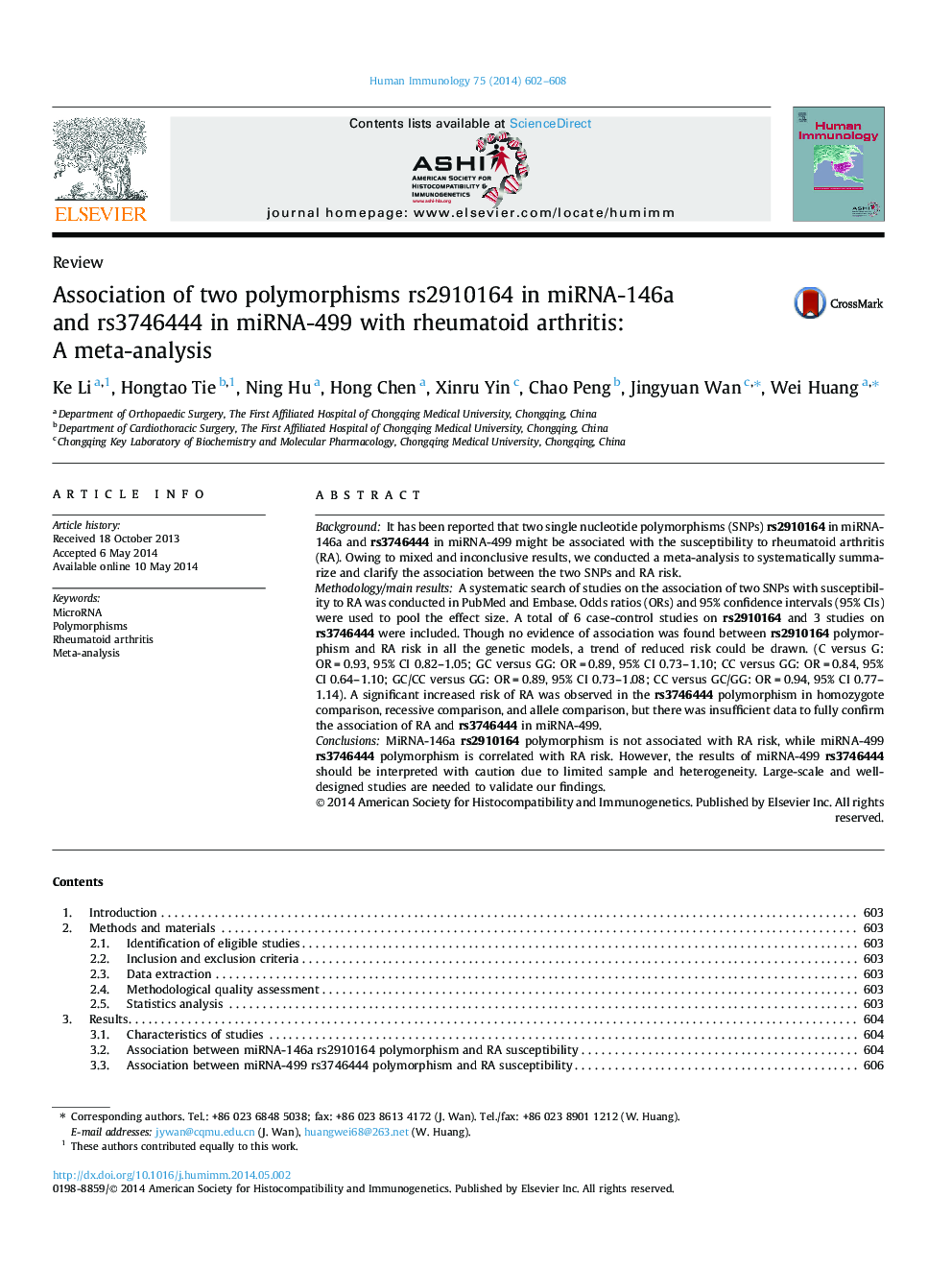| Article ID | Journal | Published Year | Pages | File Type |
|---|---|---|---|---|
| 3350391 | Human Immunology | 2014 | 7 Pages |
BackgroundIt has been reported that two single nucleotide polymorphisms (SNPs) rs2910164 in miRNA-146a and rs3746444 in miRNA-499 might be associated with the susceptibility to rheumatoid arthritis (RA). Owing to mixed and inconclusive results, we conducted a meta-analysis to systematically summarize and clarify the association between the two SNPs and RA risk.Methodology/main resultsA systematic search of studies on the association of two SNPs with susceptibility to RA was conducted in PubMed and Embase. Odds ratios (ORs) and 95% confidence intervals (95% CIs) were used to pool the effect size. A total of 6 case-control studies on rs2910164 and 3 studies on rs3746444 were included. Though no evidence of association was found between rs2910164 polymorphism and RA risk in all the genetic models, a trend of reduced risk could be drawn. (C versus G: OR = 0.93, 95% CI 0.82–1.05; GC versus GG: OR = 0.89, 95% CI 0.73–1.10; CC versus GG: OR = 0.84, 95% CI 0.64–1.10; GC/CC versus GG: OR = 0.89, 95% CI 0.73–1.08; CC versus GC/GG: OR = 0.94, 95% CI 0.77–1.14). A significant increased risk of RA was observed in the rs3746444 polymorphism in homozygote comparison, recessive comparison, and allele comparison, but there was insufficient data to fully confirm the association of RA and rs3746444 in miRNA-499.ConclusionsMiRNA-146a rs2910164 polymorphism is not associated with RA risk, while miRNA-499 rs3746444 polymorphism is correlated with RA risk. However, the results of miRNA-499 rs3746444 should be interpreted with caution due to limited sample and heterogeneity. Large-scale and well-designed studies are needed to validate our findings.
